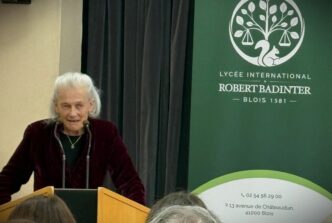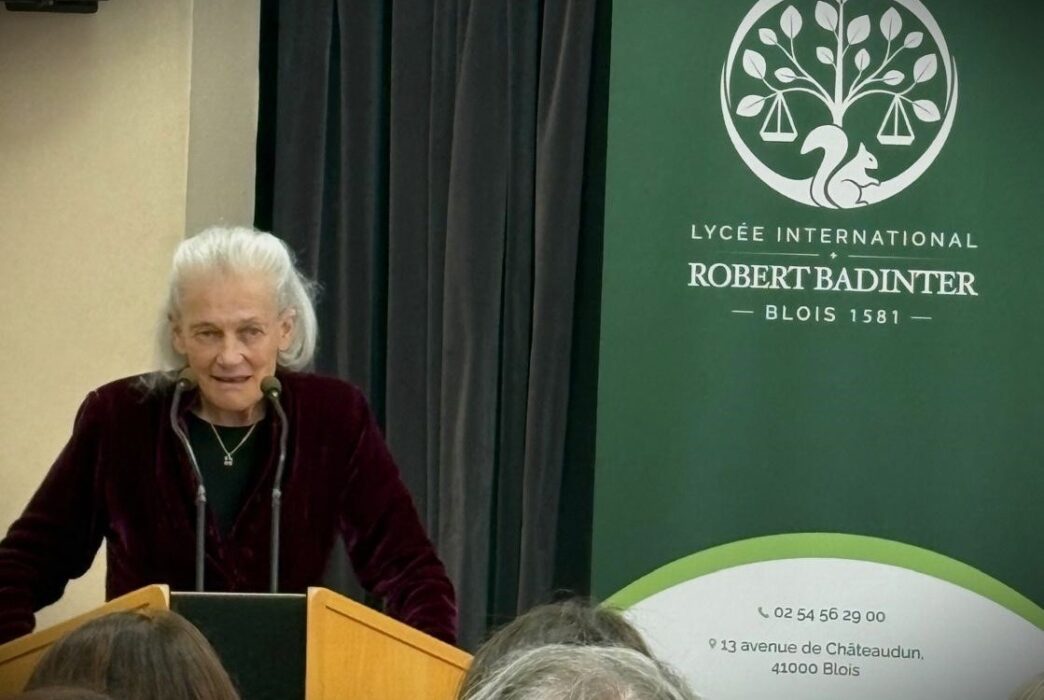Executive Summary
- Elisabeth Badinter is identified as the world’s wealthiest author, primarily due to her substantial inherited stake in the multinational advertising and public relations company Publicis Groupe.
- Badinter’s immense fortune, stemming from corporate ownership, distinguishes her from authors like J.K. Rowling, whose considerable wealth is almost entirely self-made through literary works and associated media franchises.
- The article clarifies that the title of “richest author” is nuanced, as it refers to an individual who writes and possesses extraordinary wealth from other sources, rather than necessarily the one who earned the most from their literary output.
The Story So Far
- Elisabeth Badinter is considered the world’s wealthiest author not primarily due to the commercial success of her philosophical and feminist writings, but because her vast fortune largely originates from a significant inherited stake in Publicis Groupe, a global advertising and public relations giant founded by her father, highlighting a distinction between wealth earned through literary output and overall net worth held by an author.
Why This Matters
- The revelation that Elisabeth Badinter’s status as the world’s wealthiest author stems primarily from inherited corporate ownership, rather than her literary output, highlights a crucial distinction in how authorial wealth is accumulated. This challenges common perceptions by demonstrating that immense personal fortunes associated with authors are not always directly generated from literary success, thereby redefining what it means to be the “richest author” and emphasizing the significant role of inherited wealth in the financial landscape of the literary world.
Who Thinks What?
- Elisabeth Badinter is considered the world’s wealthiest author due to her substantial inherited fortune from Publicis Groupe, combined with her accomplishments as a philosopher and writer.
- J.K. Rowling exemplifies a different kind of wealth, having amassed her high net worth almost entirely through her self-made literary achievements and the resulting global franchise.
- The article concludes that the “richest author” title depends on the definition of wealth: if inherited assets are included, Badinter holds the title, but if wealth is solely from published works, Rowling is a prime contender.
While many might assume J.K. Rowling, the visionary behind the colossal Harry Potter empire, holds the title of the world’s wealthiest author, the reality is more nuanced and surprising. The individual who often tops lists as the richest author globally is Elisabeth Badinter, a French philosopher, feminist, and author whose vast fortune primarily stems not from her literary works, but from a significant inheritance linked to one of the world’s largest advertising and public relations companies. This distinction highlights a crucial difference between wealth earned directly through writing and wealth held by an author through other means, often leading to common misconceptions about who truly holds the top financial spot in the literary world.
The World’s Richest Author Revealed
Elisabeth Badinter, born Elisabeth Bleustein-Blanchet, is the daughter of Marcel Bleustein-Blanchet, the founder of Publicis Groupe. Publicis Groupe is a multinational advertising and public relations company headquartered in Paris, France, and is one of the “Big Four” agency companies, alongside WPP, Interpublic, and Omnicom. Her substantial stake in this global powerhouse is the primary source of her immense wealth, estimated to be in the billions of dollars.
While Badinter is indeed an accomplished author, her literary contributions are primarily in the realm of philosophy, feminism, and historical analysis. Her notable works include “Mother Love: Myth and Reality” and “XY: On Masculine Identity.” These books have earned critical acclaim and respect within academic and intellectual circles, but their commercial success, while significant for their genre, does not compare to the mass-market phenomenon of a series like Harry Potter.
Her position as the wealthiest author, therefore, stems from a combination of her inherited financial power and her intellectual pursuits as a writer. This unique blend often complicates direct comparisons with authors who have built their entire fortunes solely on the sales of their books and associated media.
Understanding Authorial Wealth
The wealth of an author can be generated through various channels, making the definition of “richest author” complex. The most direct and common sources include advances for book deals, royalties from book sales, and earnings from film, television, and stage adaptations. Beyond these, authors can profit from merchandise, speaking engagements, and digital content.
However, when inherited wealth enters the picture, it typically dwarfs earnings derived purely from literary output. An author who writes as a profession but also possesses significant inherited assets will often appear wealthier than an author whose entire fortune is built book by book. This distinction is vital for understanding why someone like Elisabeth Badinter, despite her influential writings, is not primarily known for her literary sales figures, yet holds the top spot for overall net worth among individuals who are also authors.
The J.K. Rowling Phenomenon
J.K. Rowling is undeniably one of the most successful authors in history, having created a global cultural phenomenon with her Harry Potter series. Her wealth, estimated in the high hundreds of millions of dollars, is almost entirely self-made through her extraordinary literary achievements. The success of her books led to a massive franchise including eight blockbuster films, a stage play (*Harry Potter and the Cursed Child*), theme park attractions (The Wizarding World of Harry Potter), and a vast array of merchandise.
Rowling’s ability to create an immersive world that captivated millions across generations has made her an economic force. Her earnings come directly from book sales, royalties, film rights, theme park deals, and her digital platform, Pottermore (now Wizarding World Digital). While she was once considered a billionaire, extensive philanthropic donations have seen her net worth fluctuate, often placing her just below the billion-dollar mark, though she remains incredibly affluent.
Her story is a testament to the immense financial potential of successful authorship when combined with astute business management of intellectual property. For many, she embodies the dream of becoming wealthy purely through the power of storytelling.
Other Literary Titans with Significant Fortunes
Beyond Rowling, several other authors have amassed considerable wealth through their writing careers. Stephen King, known for his prolific output of horror and suspense novels, has consistently been one of the highest-earning authors for decades. His steady stream of bestsellers, coupled with numerous film and television adaptations, has built him a vast fortune.
James Patterson, another incredibly prolific writer, particularly in the thriller genre, also ranks among the wealthiest. His strategy of co-authoring many books and maintaining a relentless publishing schedule has ensured his continued financial success. Danielle Steel and Nora Roberts are also stalwarts in the romance genre, consistently publishing bestsellers and maintaining significant net worths derived almost exclusively from their literary endeavors.
These authors demonstrate that building a massive fortune directly through writing is achievable, but it typically requires extraordinary commercial success, consistent output, and a broad appeal to a global audience. Their wealth, however, is distinct from that of Elisabeth Badinter, whose primary financial foundation lies in inherited corporate ownership.
The Nuance of “Author” and “Wealth”
The discussion of the “world’s wealthiest author” ultimately hinges on how one defines both “author” and “wealth.” If “author” refers to someone whose primary source of income and wealth is derived from their published works, then J.K. Rowling would undoubtedly be a strong contender for the top spot. Her fortune is a direct result of her creative output and its commercialization.
However, if “author” simply means a person who writes and publishes books, regardless of the source of their overall financial standing, then Elisabeth Badinter’s inherited wealth places her at the apex. This distinction is crucial for a clear understanding of the financial landscape within the literary world and highlights that not all wealth associated with authors is generated from the act of writing itself.
Ultimately, while J.K. Rowling remains a beacon of self-made literary success, Elisabeth Badinter holds the title of the wealthiest author globally due to her substantial inherited stake in Publicis Groupe. This clarifies that the world’s richest author is not necessarily the one who has earned the most from their books, but rather an individual who both writes and possesses an extraordinary fortune from other, often inherited, sources.








